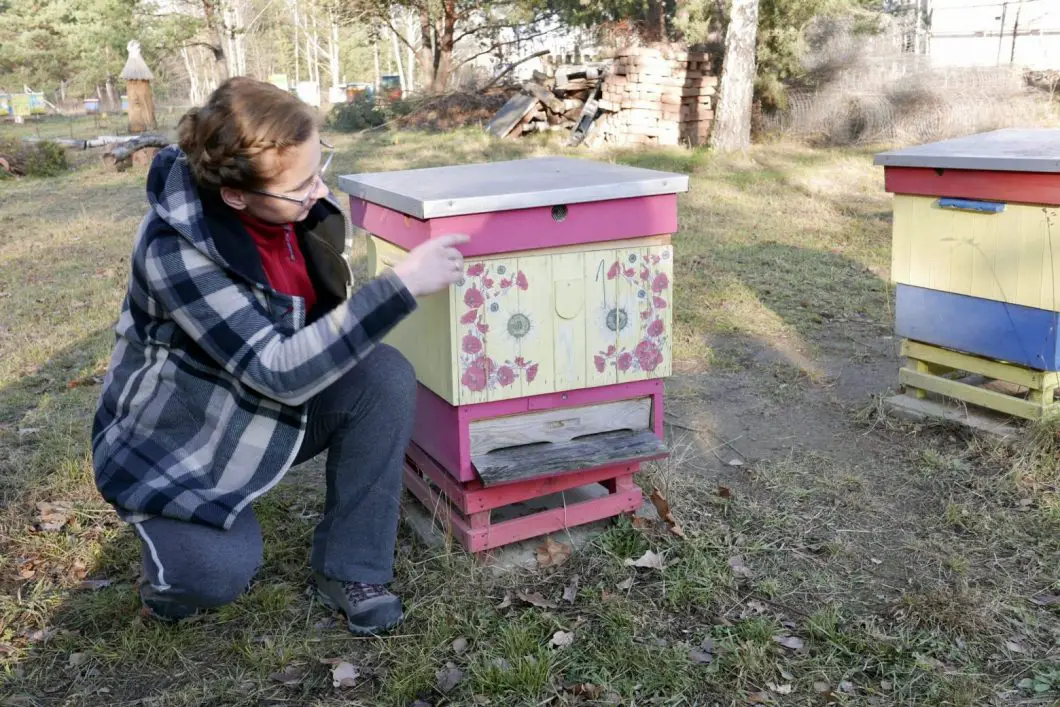
This post follows those lines and is inspired by my recent visit to the Association of Beekeeping Enthusiasts – Stowarzyszenie Nasze Pszczoły – in Jabłonna, a small village in central Poland. This was part of a wider press trip to Poland which I’ll write more about soon but if you can’t wait though, there are loads of pictures and stories on my instagram.
There are two things which struck me that day. Firstly, the passion and knowledge Anna and Marek showed towards their hobby. Secondly, how increasingly obvious it is that both at home and abroad, it’s the individuals, charities and clubs who are fighting for our planet and not those in charge. Perhaps I sound pessimistic but I have good reason. Here in the UK we’ve somehow just voted to keep a party in power which places little importance on the environment so sadly I think it’s down to us and people like Anna and Marek to try and turn climate change around and start to make a positive impact on our planet.
Back to Poland. With just 62 members, the association is a small one but from a wooden shed and scrub of land surrounded by building works these passionate volunteers are working hard to protect honey bees and the important work they do in nature. It really is impressive to see.
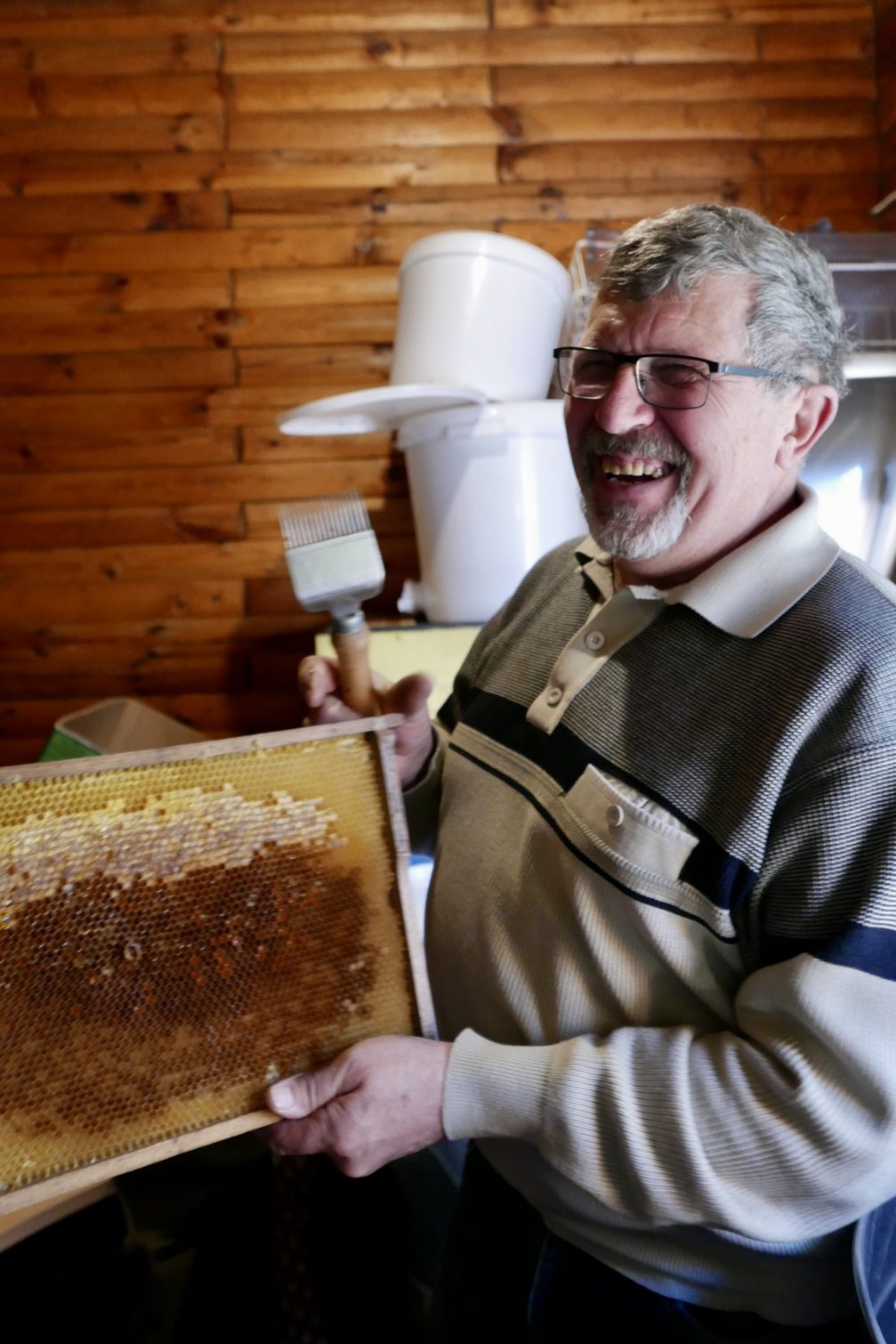
We arrived on a cold December morning and, huddled around a projector screen and an electric heater, Anna walked us through the life cycle of the honeybee and the incredible and important work they do for us. We learned that at least one third of crops we eat on a daily basis rely on bee pollination. That equates to 70 of the top 100 foods eaten by humans. A single bee colony can pollinate 300 million flowers daily – or at least, they could if there were that many flowers around!
Anna told us that over the last few years, their bee colonies have been shrinking and in the last year, were vastly down. This could be down to a number of factors including loss of habitat and food sources down to use of pesticides and industrial agricultural practices by farmers. Anna feels that climate change which of course can affect and is affected by all of these things, is a real threat and fears for the future of her bees. Greenpeace agree, stating that since 1985, Europe has lost 25% of its commercial honeybee population. Take into consideration, wild honeybees and that figure is huge.
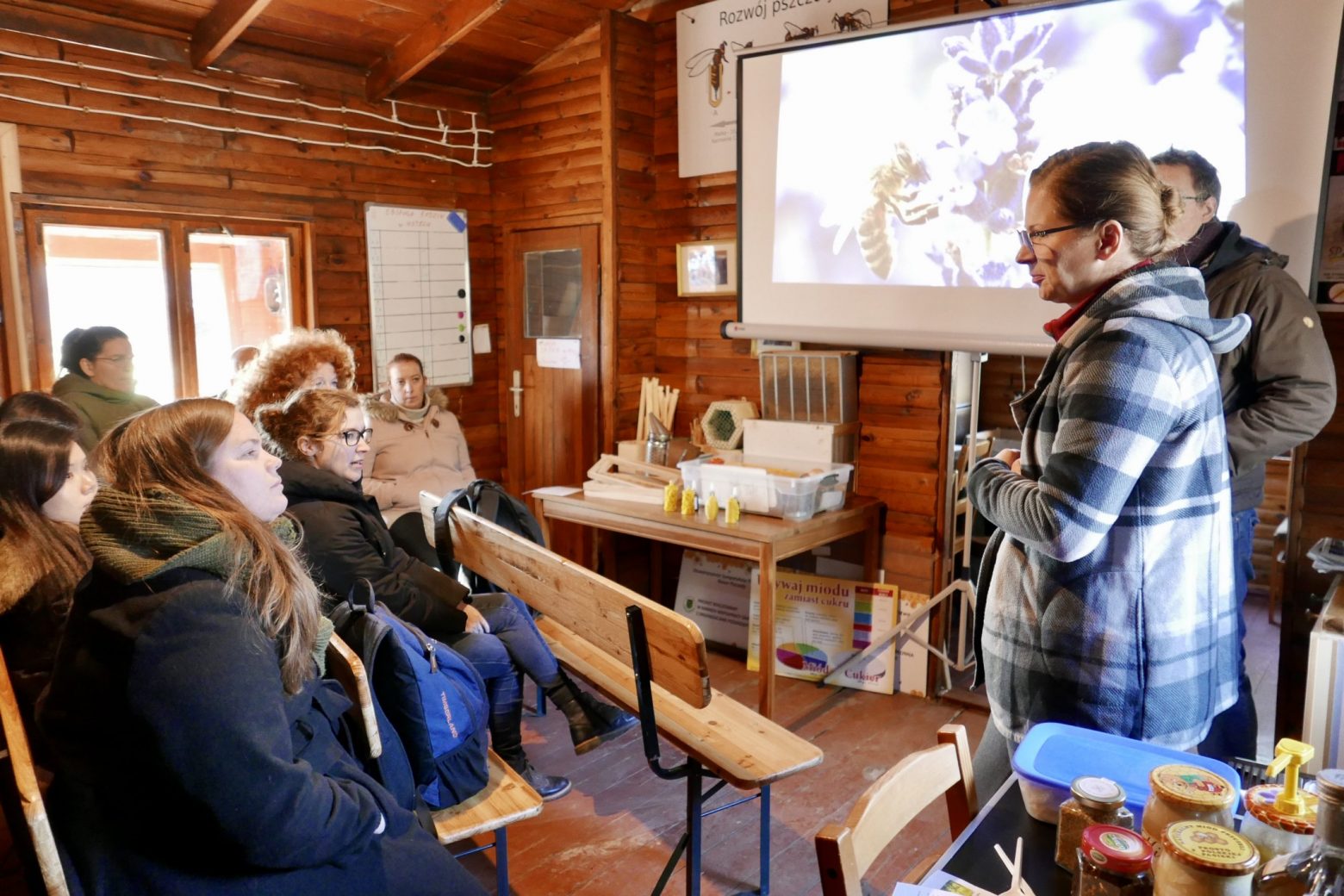
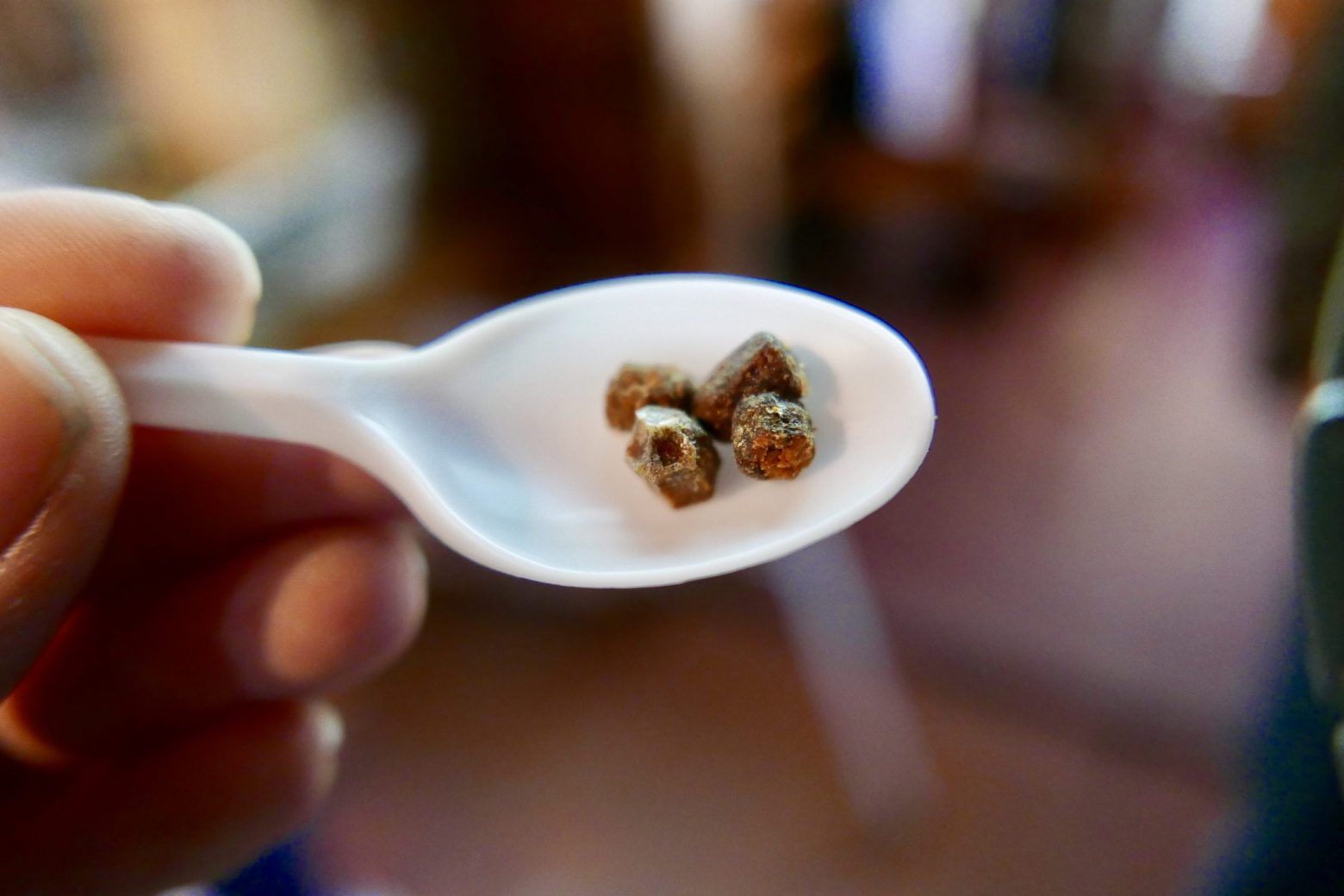
Homemade produce at its best
Whilst we were with Anna and Marek, we were lucky to try see and sample of their produce. They sell honey, make honey liqueur and wine and beeswax candles. All the money they raise goes back into the association to make equipment upgrades and buy more bees. We tried all of these along with bee pollen and bee bread. Bee pollen is increasingly popular in fancy restaurants and delis for its health benefits. You might have seen it? It’s made of flower pollen, honey, wax and bee saliva (yes really!). Sounds grim but actually, is pretty tasty.
Bee bread (a first for me) is similar but with a tougher, almost toffee-like consistency. It’s made with pollen and honey and is created by the worker bees to feed their larva. They plug it into the honeycomb as a kind of feeding block, hence its hexagonal shape, as shown above). Everything was delicious and unique to the Jabłonna area, as is all honey.
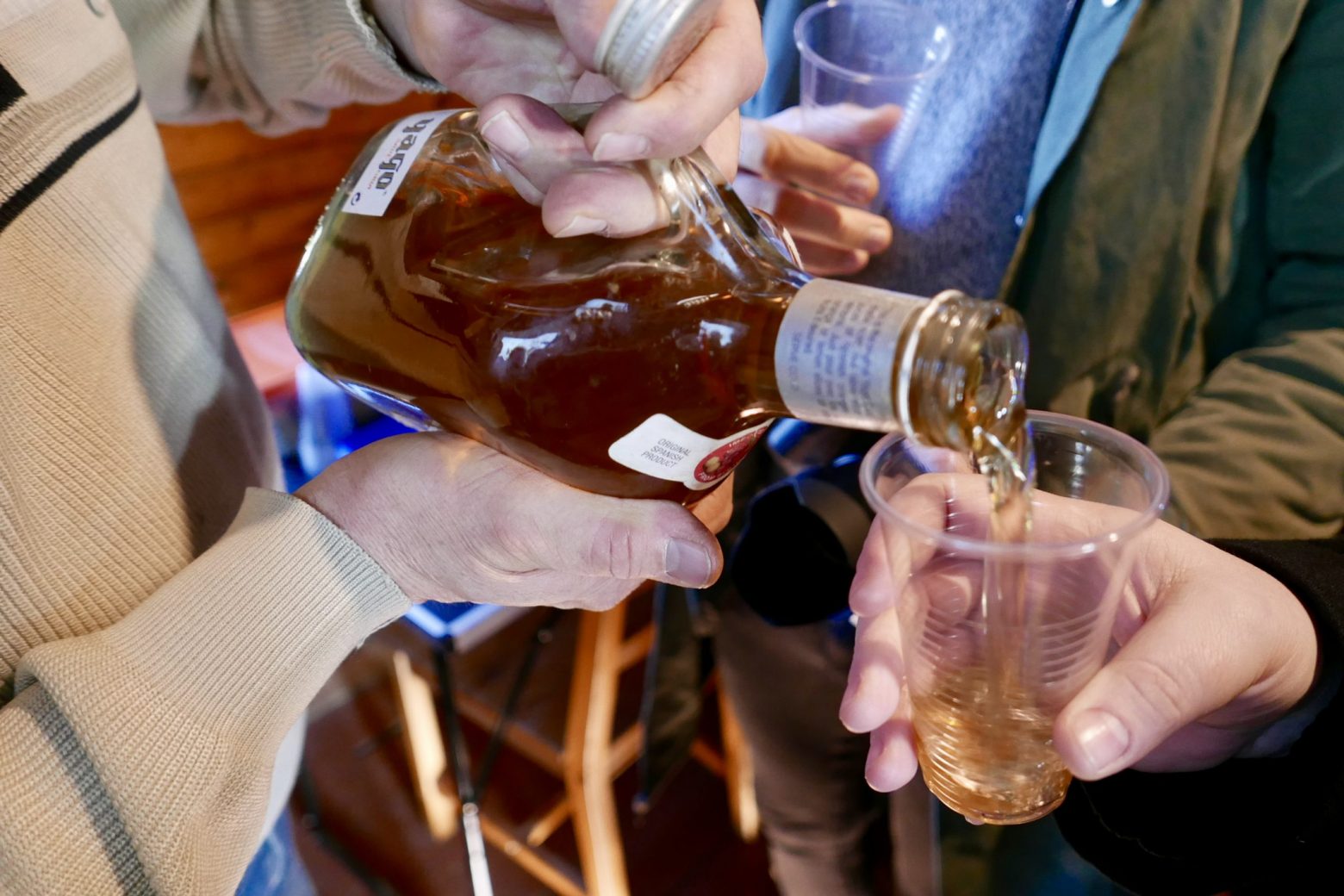
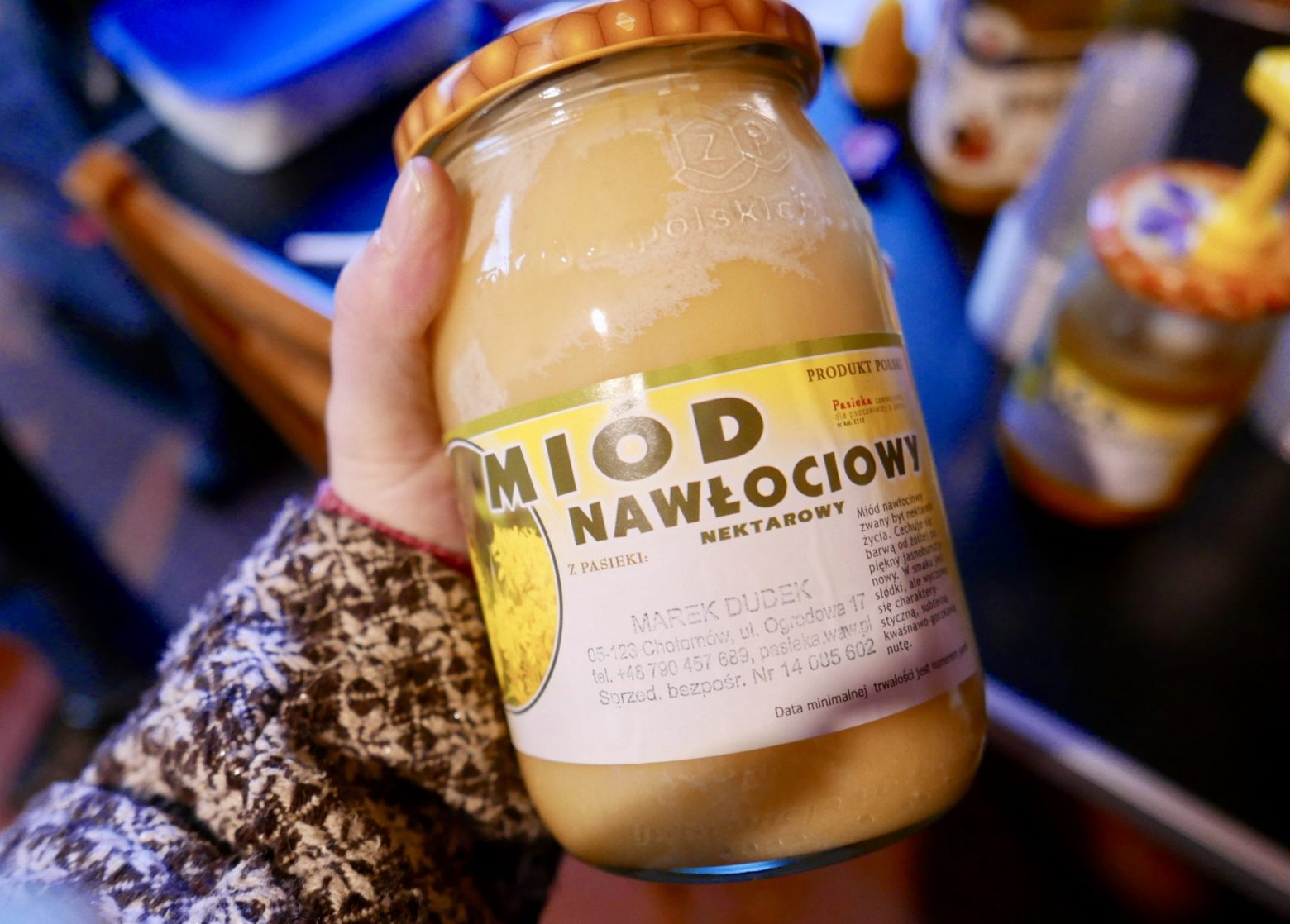
Why do we need to help the honeybees?
As usual, when I find something interesting, I disappear down a rabbit hole. That’s what happened following my visit. I wanted to find out how we, as individuals, can help the bees and why their population is declining. One factor which is causing the decline of bees on a global level is industrial farming. Widespread use of pesticides has been cited as one of the main damaging factors to our wildlife, bees included.
Philip Lymbery talks about this in his book Farmeggedon which although a few years old, is well worth reading. In some areas of the US where mono-culture farming is common place (farms growing one single crop or livestock), bees can no longer survive. There just isn’t enough variety of plants for them to live off. This has resulted in the crazy practice of bee rental – professional pollination services. Trucks will ferry thousands of bees across the country to where they are needed at any one time. This isn’t without its dangers. In June this year for example, millions of bees escaped after a truck carrying them from Dakota to California crashed.
If we were to revert back to more traditional farming practices, we’d find that this issue would go away. Honeybees would be back in their natural habitats and our soil health would be rejuvenated. Instead, we’re wiping out our countrysides. We’re destroying wildlife and spending time, money and fuel on forcing nature to go against itself to do the work we need it to do Sigh.
Ways you can help at home
- Plant bee friendly flowers in your garden
- Avoid using pesticides and chemicals on your plants
- Support your local farmers by shopping locally and eating seasonally
- Buy local honey – even better, raw honey
- Make a bee hotel – here’s how
- Encourage local garden centres to stop selling pesticides and chemicals (if they do).
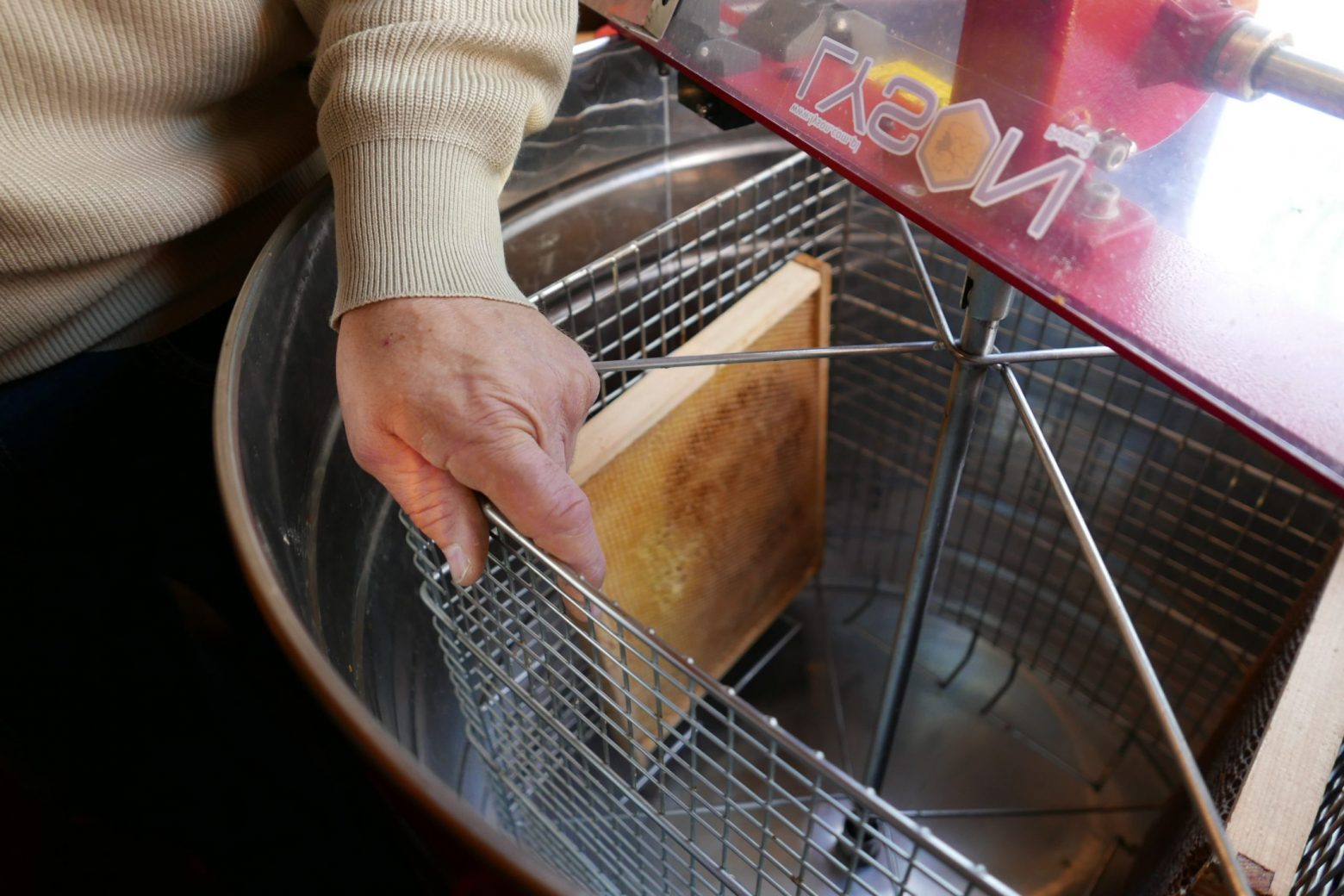
If you’d like to find out more about the plight of the honeybee, take some time to read this report from Greenpeace and find your local beekeeping association here. Whether you speak Polish or not, I would also recommend liking the Nasze Pszczoły facebook page in solidarity for the fantastic work they are doing on limited resources and around full time jobs. Incredible. 🐝
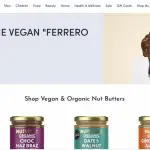


I am very concerned about the plight of the honey bee. I would love to keep bees but my situation wouldn’t allow it 😔. I do however plant loads of different things on my allotment and in the garden that I know attract bees. I think I will put a bee hotel up at the allotment!
What an educative post. Good to know how I can do my own bit at home.
Oh wow what a cool experience and yes to the power of bees and also helping them to thrive!
It is unfortunate that the government and other powerful people are doing very little for the environment. They just seem to be concerned about filling their pockets with money. SO, yes it is up to individuals to do as much as they can. It is very sad.
I relate to this post so much for many reasons. Pioneering the bees (a topic I know a lot about as I have a raw honey client so am aware of why supermarket honey is so unnatural and unsustainable and that crazy renting of hives due to monocultures – to list just a few things that more people should be aware of. I too go down rabbit holes of research – that’s why my blog posts take me so long to write! And my Dad was Polish – the food traditions of Poland are based on valuing the amazing natural produce of the rich countryside. Unfortunately this concept is being changed due to EU incentives. And yes, the appalling government – makes me despair – short term commerce given precedence over the devastating impact of the climate crisis. Rant over! Thanks for highlighting in this very interesting post.